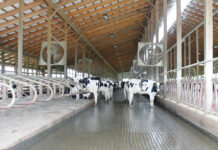Covered with sweat and dust, my calves ached, my skin baked, I was gasping for air, and grasping for motivation.
It’s not really unexpected, I guess, when a girl from the Midwest goes hiking in the high desert in mid-July.
I wasn’t acclimated to the elevation nor the intense desert heat that Sedona, Arizona, serves up by summer’s midmorning.
Though I wanted to quit before reaching the summit, I decided instead to stop, turn around, and look back at the progress I had made. That was, after all, the purpose of my westward trip: A time of reflection for my 50th birthday.
As soon as I put my pack down and turned around, a gust of wind blew across my face, kissing my cheeks with cool and instant relief. After a few moments to take in more water, oxygen, and magnificent red rock views from all directions, I began to regain my breath and perspective. Then I sized up the steep rocks ahead and continued to climb.
Lessons from the past
With many things in life, taking the time to pause and look back often helps us to move forward with more clarity, intent, and understanding. I really began to appreciate this as a cultural history interpretation major in college.
As philosopher Soren Kierkegaard noted — you live life looking forward, but you understand life looking backward.
This year featured many historic milestones that welcomed our reflection as a country and a culture including the first steps on the moon, the infamous burning of the Cuyahoga River, the Prohibition, Woodstock, and the Normandy Landings (D-Day), to name a few.
Looking back sparks gratitude for those who came before us — for their courage, perseverance, trials, triumphs, and lessons of the past — which make our lives better today.
Rediscovering our roots
This year, the Geauga Soil and Water Conservation District celebrates its 75th year, and we have been looking back.
By sifting through boxes, binders, brown newspaper clippings, black and white photographs, and fragile, musty documents, the stories of some who came before us are now being rediscovered and retold.
We even found a 1944 United States Department of Agriculture movie titled For Years to Come promoting the benefits of soil conservation farming that was shown at public programs by our very first board of supervisors.
By looking back, we’ve come to understand that these men (and the wives who stood beside them) were so much more than conservationists — they were brave pioneers and spirited activists who recognized land-use mistakes from the past and believed in a better future.
Having witnessed the Dust Bowl and two World Wars, their eyes were opened to the need for soil conservation and resource management and their hearts were committed to creating a Conservation District. Together they collaborated with a conservation farming message of “better use of every acre of land in Geauga County.”
In 1944 their efforts paid off. The Geauga Soil Conservation District was established by a vote of the people, Geauga County landowners, who secured the largest affirmative vote in the state at that time — 771 votes for and only 21 opposed — to begin Ohio’s 29th District.
Committed to conservation
Anthropologist Margaret Mead told us to, “Never doubt that a small group of thoughtful, committed citizens can change the world; indeed, it’s the only thing that ever has.” Those involved in the creation of our county Soil (and now Water) Conservation Districts have truly changed the world by securing long-term natural resource management and protection.
While resource priorities vary from county to county and will undoubtedly continue to change over time, the need for a local entity to coordinate local resource objectives will never change.
Let us come together, like our forefathers did, and continue the challenge of “using and managing our resources so as to bring the maximum benefit to society for an indefinite period.”
Past poem
One of the most special treasures recently discovered in the Geauga Soil and Water Conservation District archives was a poem written by an original board member, Albert Haskins, who served from 1945-1949.
His words allow us to pause, look back, and gain perspective and clarity for the path ahead. Together, let’s accept tomorrow’s challenges and continue to climb.
When we wandered round our farms
In the days of long ago.
And our minds were free from harms
Waters running down the row
We all thought our soil was mellow
Till the water left the fields
Bur very soon they plowed up yellow
And affected our good yields.
It was then we had our sorrow
For receipts were running low
Twas an awful sin to borrow
We as neighbors all did know.
For the welfare of our nation
We began to work and plan
In hopes the future generation
Would improve the work of man
Now when the offices were filled
With help from State and County
The farmers then their soil should build
To receive a larger bounty.
The fields were changed as they were booked The rows went cross the hills No matter if they crooked looked
They stopped the washing rills
The county men laid out the fields
In strips — You’ll think it funny
But when farmers figured out their yields It made them some more money.
The Pasture land had gone to rest
Without good seed and lime
But it was brought up by the test
To feed the stock sublime
And when the milk trucks loaded went
With a few extra cans.
The farmers felt their time well spent
In following out their plans
Some fields were tiled, diversions made
Against the rains that spoil
To stop the water on the grade
And save the good top soil
Now years they come and years go by.
All seem of short duration
But we are glad we made the try
For the future generation.
Now when we think of how we work
From early spring till fall
They’ll have to say we didn’t shirk
For farmers feed them all.
— Albert Haskins, Geauga SWCD Board Supervisor (1945-1949)












